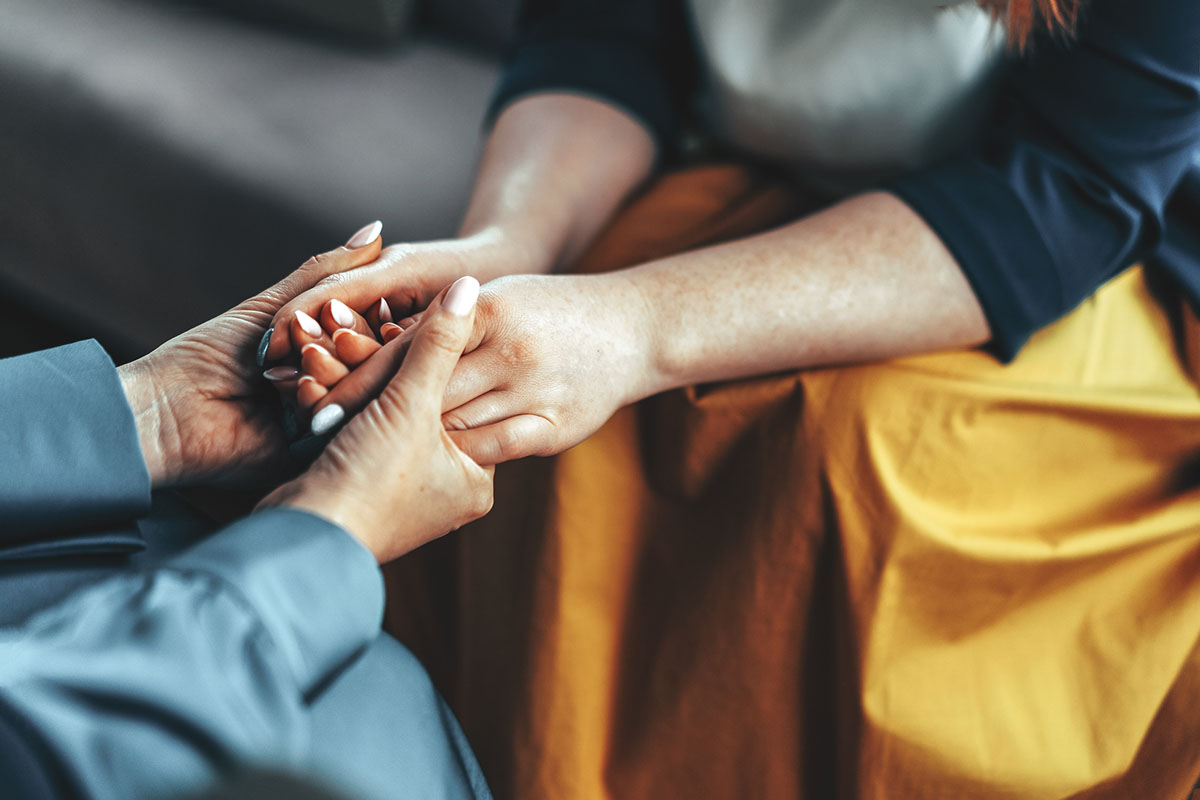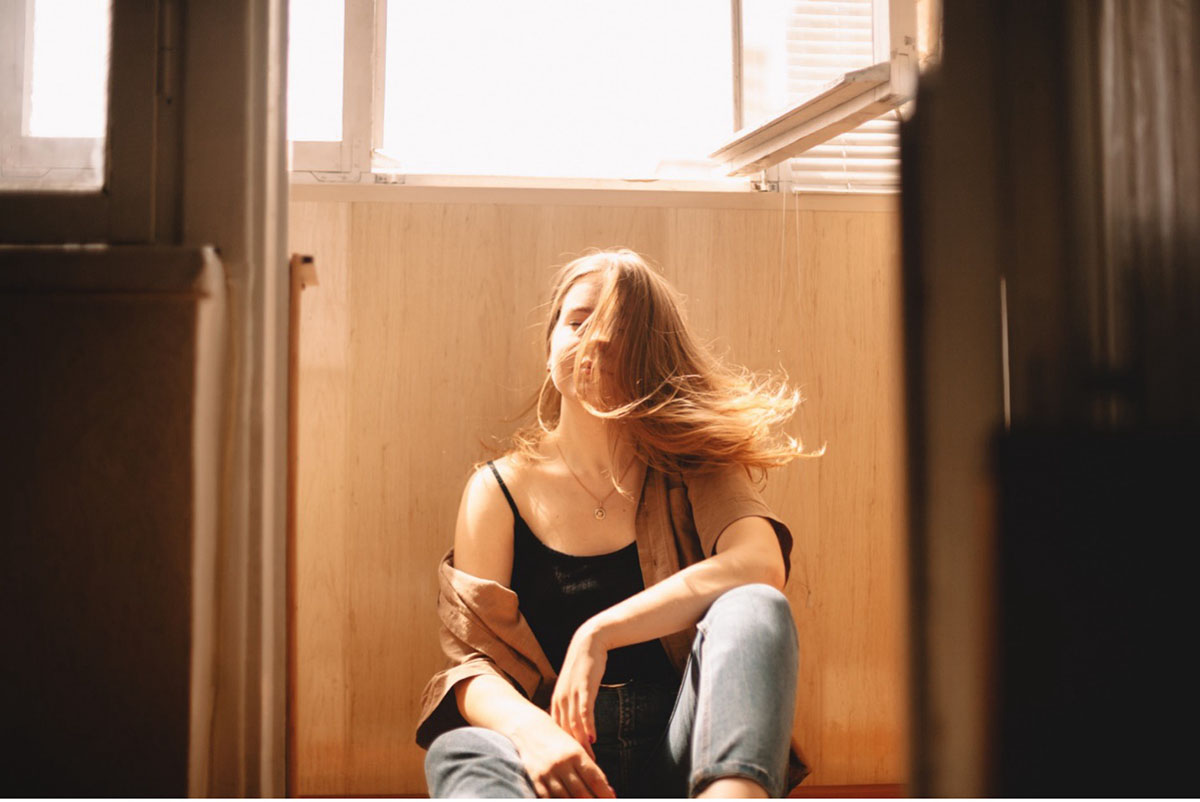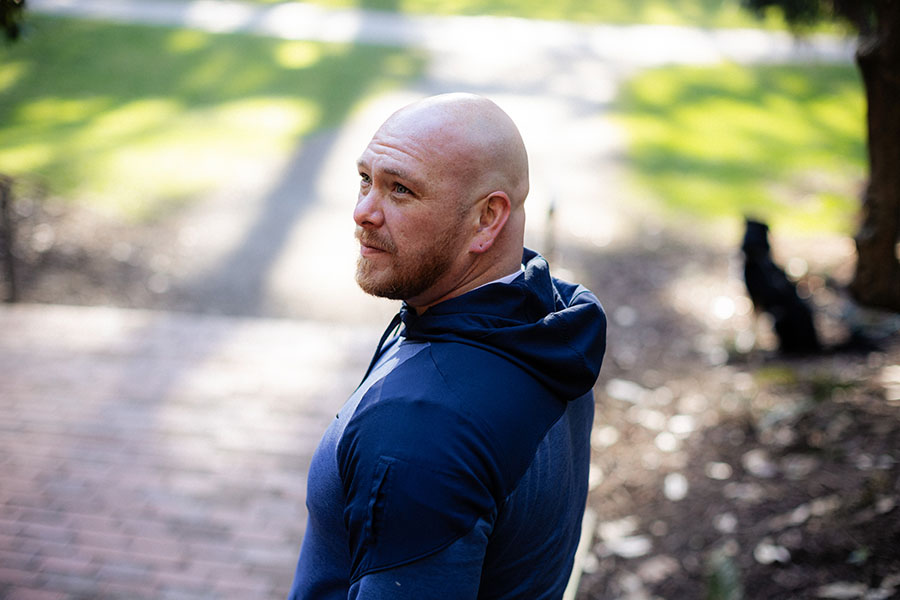Sarah’s Story: A safe space can change your life
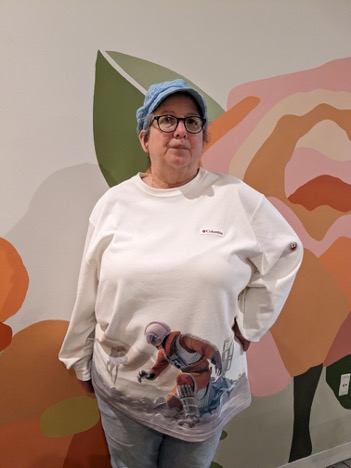
For Sarah Hobbs, anxiety has been a constant presence in her life, a daily battle that manifests physically as pain in her stomach, racing thoughts in her head and episodes where her legs give out from stress.
“Anxiety has been a lifelong struggle for me," she says, "like having swallowed boulders that just sit there making it hard to do anything.”
But anxiety was only one part of Sarah's challenge. Her battle with mental health nearly took her life a decade ago.
In 2005, at her lowest point, Sarah felt overwhelmed by everything she was dealing with—severe anxiety, trauma from domestic violence—and the ongoing instability of homelessness. The stress was constant, and she struggled to see a way forward.
She found herself standing on the Vista Bridge in Portland. At one point, she looked over and thought about how exhausted she was and how impossible it all felt.
"But in that moment," Sarah recalls, “something, maybe a spirit greater than myself, snapped me out of it. I thought about my kids and how much they needed me.”
That moment changed the course of her life. She went on to become a suicide prevention advocate, working with the American Foundation for Suicide Prevention to help others who struggled as she once had.
“I know what it’s like to feel like you don’t matter,” she says. “But I also know that you do. If you’ve ever felt something, someone else has too, you’re never as alone as your mind makes you believe.”
A safe space can change your life
In 1997, long before that night on the bridge, Sarah had sought comfort and safety as best she could. She was homeless with two young children and a survivor of domestic violence. She recalled how she had nowhere to go during the day, no safe place to gather herself— until she found Rose Haven.
Rose Haven is the only day shelter and community center in Portland serving women, children and gender-diverse individuals. The shelter was founded 27 years ago after a group of women, led by a nun, surveyed unhoused women and asked them what they needed. The overwhelming answer was simple: "We need a safe place to go during the day."
Liz Starke, Rose Haven’s Development Director, explains why this is so important. “Eighty percent of our guests are actively experiencing homelessness. Some have temporary shelter beds, but many live in cars, tents or on the streets. The trauma of losing housing, facing violence and existing in a constant state of survival deeply affects mental health. You can’t plan for the future if your brain is in crisis mode.”
That’s why Rose Haven provides more than just meals, showers and an on-site clinic. The shelter also offers mental health support and community activities, which include coping tools such as acupuncture, art therapy, peer support groups and crisis de-escalation.
“We realized that people needed more than just survival services,” she says. “They needed a place where they could rebuild their sense of self.”
This sense of safety and stability is exactly what Sarah needed. Fast forward to today, past homelessness, past abuse and trauma, past that day on Vista Bridge. Sarah now lives in her own apartment and, with her crisis in the past, she often returns to Rose Haven for other supportive services.
“Rose Haven has been a vital resource,” Sarah says. “They’ve provided me with meals, a sense of community and a space to feel safe. They have always been there for me when I needed them most.”
The Intersection of mental health and homelessness
For Sarah, the trauma of losing housing, experiencing violence, and struggling with anxiety has shaped much of her life. And she’s not alone—nearly half of people experiencing homelessness have a mental illness, and one in four suffer from conditions such as PTSD, schizophrenia or bipolar disorder.
“People assume homelessness is caused by addiction,” Sarah says. “But in reality, a lot of people fall into substance use to cope with existing mental health challenges and the trauma of being unhoused.”
Rose Haven’s Liz Starke agrees. “A lot of what we see is untreated trauma. People who have lost housing often experience deep shame, grief and fear—and the longer they go without mental health support, the harder it is to rebuild stability.”
Coping with anxiety
One of Sarah’s most persistent mental health challenges is anxiety.
It often starts in her stomach, a heavy, twisting sensation that makes it hard to eat or move. Her thoughts race, spiral, making even simple decisions feel impossible.
Crowds of people make it worse. The noise, the movement—all overwhelm her senses, leaving her feeling trapped. At times, the anxiety has been so bad that she has had to step away from everyday situations. Even when she knows the fear isn’t always rational, it doesn’t stop her body from reacting. It’s isolating.
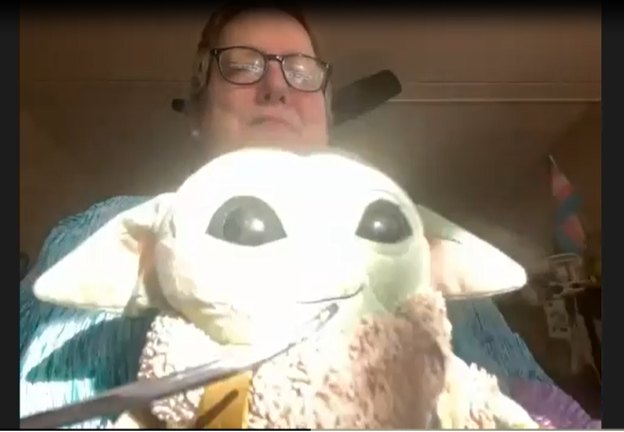
She has spent years developing ways to manage it. One of her most trusted methods? Carrying a plushy. It’s a small, stuffed Grogu (from the Star Wars television series The Mandalorian) that she squeezes tight against her chest to help her feel grounded in moments of panic.
"People probably think it's silly," she says, holding it up with a small smile. "But it helps."
“I like to remind myself that my anxious thoughts aren’t rational,” Sarah says. “When I start spiraling, I tell myself, ‘Sarah, you’re thinking silly.’ That’s my way of pulling myself back.”
In addition to Grogu, she has found additional tools at Rose Haven—compassionate listening, peer support and de-escalation techniques that have made a difference.
Liz explains how grounding tools like Sarah’s stuffie help relieve anxiety. At Rose Haven, they remind their clients to use them every day.
“Sometimes it’s just about being present,” Liz says. “If a guest is having an anxiety episode, we might ask, ‘Do you want to step outside for a minute? Listen to some music? Work on an art project?’"
The goal is to create a safe space where people feel seen and heard, and through that, their mental health improves.
Moving forward
For Sarah, managing anxiety and past trauma is an ongoing process, but there’s always hope, even when it feels impossible at times.
She’s got her tools ready, her stuffed animal by her side, and she leans on her community at Rose Haven for comfort. Every year, she takes part in Houseless Day of Remembrance, a vigil honoring those who have died while unhoused.
“We need ways to grieve together,” she says.
When asked what advice she would give to someone struggling with mental health, Sarah paused and thought back on her past experiences.
“Reach out, even if it’s hard. Anxiety and depression will tell you that you don’t matter, but you do. Find a small joy, something that reminds you of yourself. And remember: You are never alone.”
You don’t have to go it alone
CareOregon is a long-time community partner and supporter of Rose Haven.
If you or someone you love is struggling with mental health, or in recovery, visit us online to learn more and find resources. If you’re an Oregon Health Plan (OHP) member, a variety of services are covered. Learn more on our Mental Health and Substance Use Treatment page.


